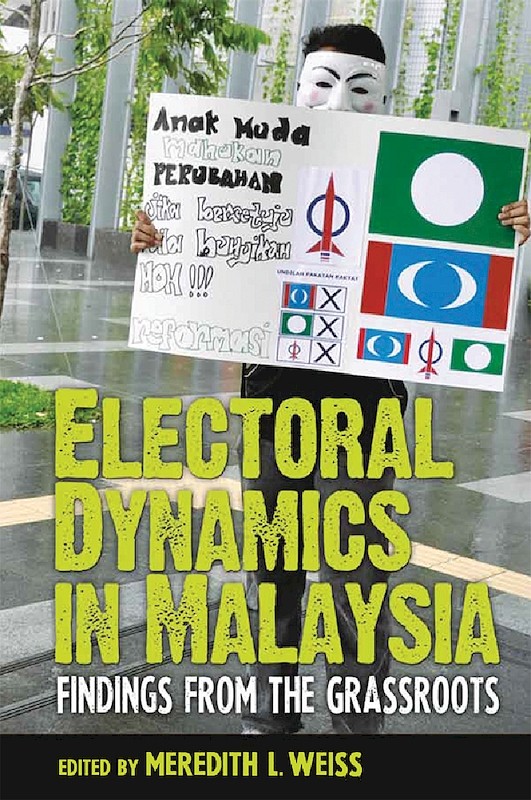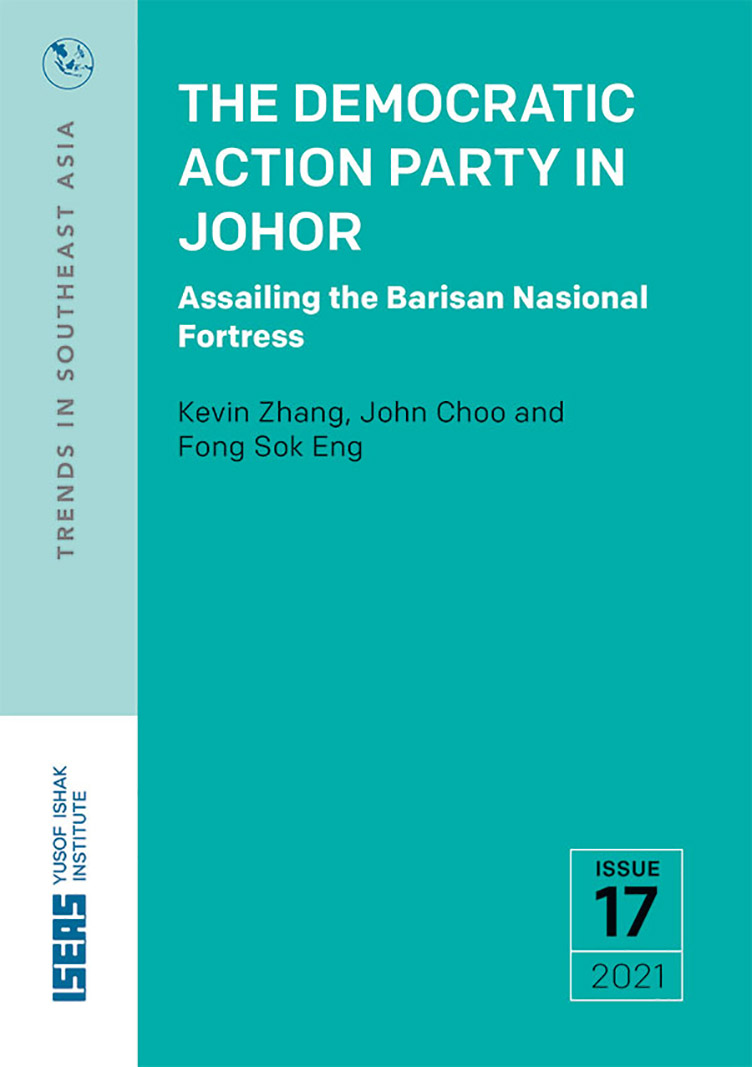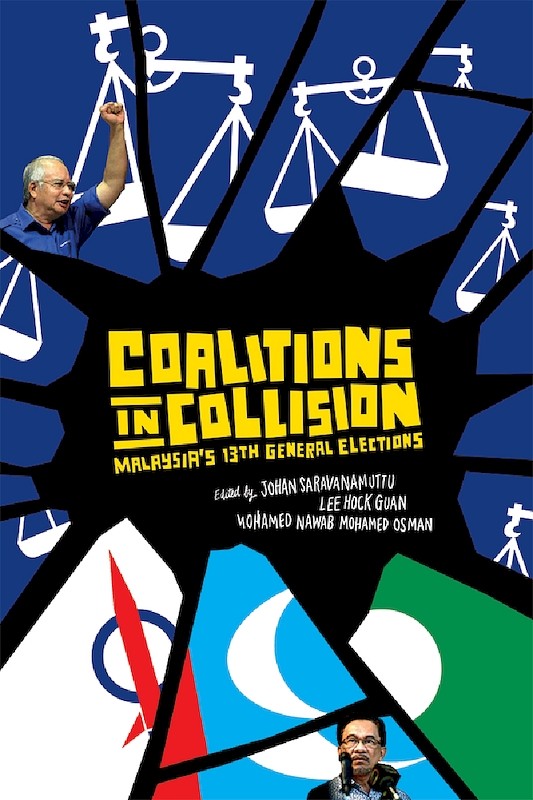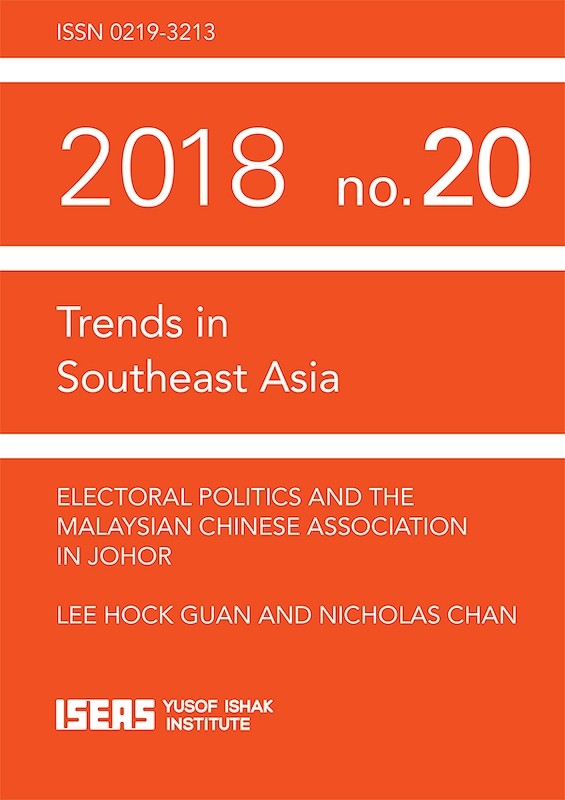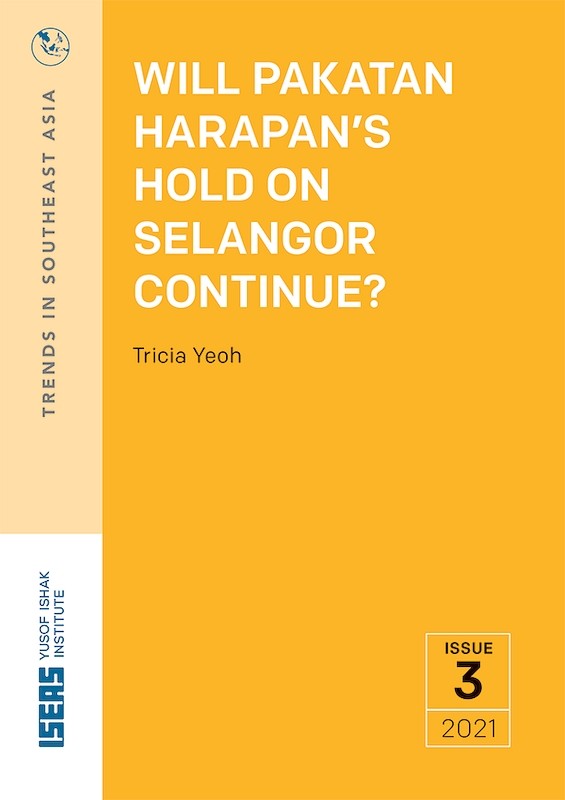The Defeat of Barisan Nasional: Missed Signs or Late Surge?

Reviews
Greg Lopez, Asian-Pacific Economic Literature, 2020.
"Of the 12,299,514 out of 14,940,624 of Malaysia's registered votes (82.32 per cent), voted at Malaysia's fourteenth general elections (GE2018). On 9 May 2018, these individual decisions, when collated, saw an unlikely event: the first change in government at the federal level since independence in 1957. Francis Hutchinson and Lee Hwok Aun from Singapore's Institute of Southeast Asian Studies (ISEAS – Yusof Ishak) and their team of contributors (from ISEAS and other institutions) provide several propositions as to why Malaysians made the decision they did, on that fateful day in their attempt to explain why Barisan Nasional (BN) lost GE2018.
The framework for this research project, developed in late 2017, drew on ISEAS' past approaches to studying elections in Malaysia and complemented them with additional lines of enquiry. .... This collection, rich in information, analysis, and opinions, should be on the bookshelves of all those interested in Malaysia, the role of elections in authoritarian states, and understanding voter behaviour."
Johan Saravanamuttu, Pacific Affairs, 2020.
"This book, a tome of more than 500 pages, was two years in the pipeline, and is the most comprehensive study of GE14 to date. In marshalling the resources and networking of Singapore's ISEAS – Yusof Ishak Institute, the editors have provided us with a wide-ranging and comprehensive study of GE14 by 24 contributors. A pleasing feature of the book is its excellent maps crafted by two cartographers.
The work continues the important electoral studies of the Malaysian studies programme of the institute. Articles are arranged in four parts: campaign dynamics, interest groups, states, and personal perspectives. Authors were tasked to seek answers as to why the ruling coalition, Barisan Nasional (BN), was defeated in 2018: were there missed signals, or a penultimate change in voting behaviour?
This book is a must-read for Malaysian political analysts to understand the past and current gyrations of electoral politics in Malaysia."
Guanie Lim, Southeast Asian Studies, 2020.
"The standout feature of this book is its attention to local-level dynamics in key states throughout the country. Praise goes to the editors for curating essays on five critical states – three in Peninsular Malaysia (Selangor, Johor, and Kelantan) and two in East Malaysia (Sarawak and Sabah). Studies on Malaysian politics too often harp on events at the national level, without equivalent attention paid to events on the ground. Thus, it is heartening to see this attention to local politics. My personal favourite essay is Chapter 15 (by Lee Poh Onn), which analyzes developments in the hornbill state of Sarawak. It goes into considerable depth on historical issues such as the maneuvering of chief ministers that came before the long-ruling Taib Mahmud (1981 – 2014), weaving them into current developments such as GE-14. There is also participant observation covering the three key constituencies of Bandar Kuching, Petra Jaya, and Mas Gading. Each of them was selected based on its ethnic composition, degree of urbanization, candidates, and parties.
Overall, this book is well organized as it balances the intellectual demands of a multi-themed approach, analyzing how the proverbial David took on Goliath and won. It also does so with a fairly reasonable speed to market, which in itself is noteworthy. Befitting its ambitious title, the book is a valuable vault of information for both general and specialist readers interested in Malaysian and Southeast Asian politics. Notwithstanding its thickness, the book provides, up-to-date empirical findings to policy makers, researchers, and business executives."
Ross Tapsell, Journal of Contemporary Asia, Routledge, 2020.
"At 23 chapters, 510 pages, 54 tables and 93 figures, The Defeat of Barisan Nasional is the most comprehensive GE14 compilation, edited by ISEAS Fellows Francis E. Hutchinson, a political scientist, and Lee Hwok Aun, an economist. In the acknowledgements these editors note that "the book is the result of a two-year collective journey" beginning in 2017, as it seemed at this point an early election might be called. The collection was published around 20 months after the election in December 2019.
The chapters are organised into four parts. "Campaign Dynamics," is written largely by economists and political scientists external to ISEAS. The next two sections of "Interest Groups" and "States" are largely written by ISEAS scholars in the Institute's Malaysia Studies Programme, which has the largest concentration of Malaysia researchers outside of Malaysia. Chapters include fieldwork conducted in key states in GE14, including the often-neglected Borneo states of Sabah and Sarawak. The final section is "Personal Perspectives" written by politicians from a wide range of parties, including the previous ruling party UMNO, and the Islamic party PAS, which would no doubt have been difficult to acquire. The list of contributors, fieldwork sites, research focus and viewpoints is impressive and extensive.
Perhaps the most useful contribution of the book is its discussion of a potentially more polarised Malaysia, an increasingly ideological divide between urban-based Malays and non-Malays in the East Peninsula, and a West Peninsula Malay heartland, as well as local-level sentiment in Sabah and Sarawak. Some of these fissures can be seen in some of the impressive and extensive tables and graphs scattered throughout the book - providing ripe material for scholars and analysts.
The BN's fall in 2018 is perhaps the signal of Malaysia moving from a clear-cut "semi-democracy" to a more "complicated democracy" - and it is increasingly difficult to predict where it will move to next. This book thus allows for a trove of material to mark the beginning of this political shift."
About the publication
Contents
-
The Defeat of Barisan Nasional: Missed Signs or Late Surge?
[Whole Publication, ISBN: 9789814843904], by Francis E Hutchinson, Lee Hwok Aun, editors -
Preliminary pages
- INTRODUCTION
-
1. 9 May 2018: The Unexpected, by Francis E Hutchinson, Lee Hwok-Aun, authors
- PART I: CAMPAIGN DYNAMICS
-
2. Against the Odds: Malaysia’s Electoral Process and Pakatan Harapan’s Unlikely Victory, by Kai Ostwald, author
-
3. Winning Elections by Rigging Borders? Barisan Nasional’s Brazen, and Failed, Attempt, by Danesh Prakash Chacko, author
-
4. Economic Dynamics and the GE-14 Surprise: Statistics, Realities, Sentiments, by Yeah Kim Leng, author
-
5. Economic Voting and the End of Dominant Party Rule in Malaysia, by Cassey Lee, author
-
6. Money, Malfeasance, and a Malaysian Election, by Meredith L Weiss, author
- PART II: INTEREST GROUPS
-
7. The Rural Malay Voter in GE-14: Expectations, Surprise, and Misgivings, by Serina Rahman, author
-
8. From Council Flats to Government Quarters: GE-14 in Urban Malay Constituencies, by Adib Zalkapli, Wan Saiful Wan Jan, authors
-
9. The Making and Breaking of Malaysia’s FELDA Vote Bank, by Geoffrey Kevin Pakiam, author
-
10. Social Transformation and the Consolidation of Chinese Votes for Regime Change, by Ngu Ik Tien, Lee Hwok-Aun, authors
-
11. Indian Voters in GE-14: Finding a New Voice?, by Anantha Raman Govindasamy, author
- PART III: STATES
-
12. Selangor: Pakatan’s Home Advantage, Barisan’s Hollow Tactics, PAS’ Hardy Base, by Lee Hwok-Aun, author
-
13. GE-14 in Johor: Shock or Just Awe?, by Francis E Hutchinson, author
-
14. Kelantan: PAS Settles in on the Balcony of Mecca, by Norshahril Saat, author
-
15. Sarawak: An Electoral Tremor with Far-Reaching Consequences?, by Lee Poh Onn, author
-
16. Sabah: the End of BN and a New Order?, by Tony Paridi Bagang, Arnold Puyok, authors
- PART IV: PERSONAL PERSPECTIVES
-
17. Lembah Pantai, Kuala Lumpur: And Together, We Will Fell Goliath!, by Fahmi Fadzil, author
-
18. Kapayan, Sabah: Silent Winds of Change, by Jannie Lasimbang, author
-
19. Pasir Gudang, Johor: Fortitude Amid Defeat, by Khaled Nordin, author
-
20. Ketari, Pahang: Protest and Loyalty, Confidence and Desperation, by Young Syefura Othman, author
-
21. Cempaka, Selangor: Keeping the Faith, by Iskandar Abdul Samad, author
-
22. Big Data and Bold Calls: How INVOKE Saw What Everyone Missed, by Rafizi Ramli, James Chai, authors
- CONCLUSION
-
23. Missed Signs or Late Surge?, by Lee Hwok-Aun, Francis E Hutchinson, authors
-
Index
-
Endpaper Maps


